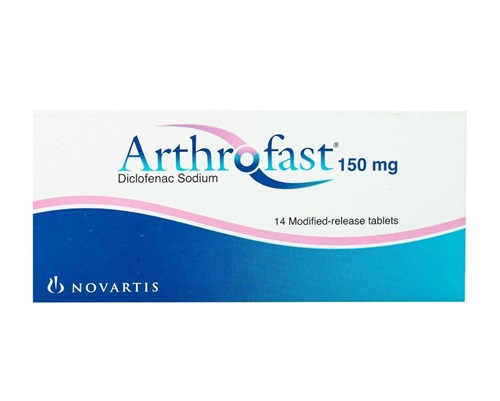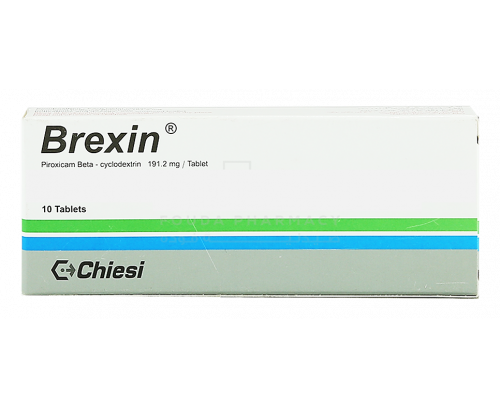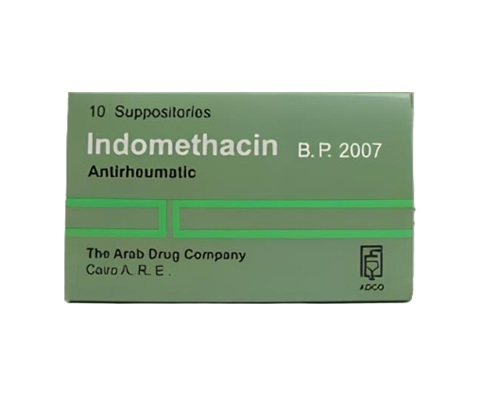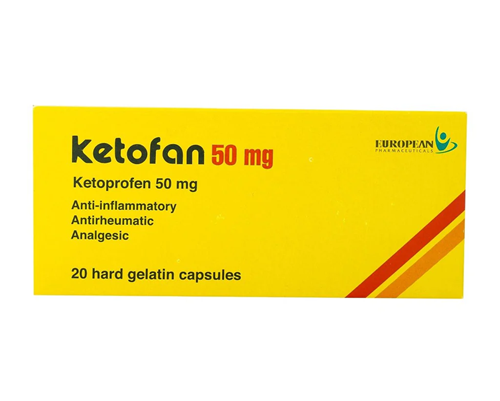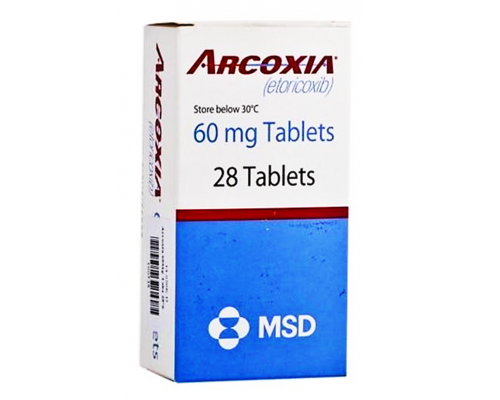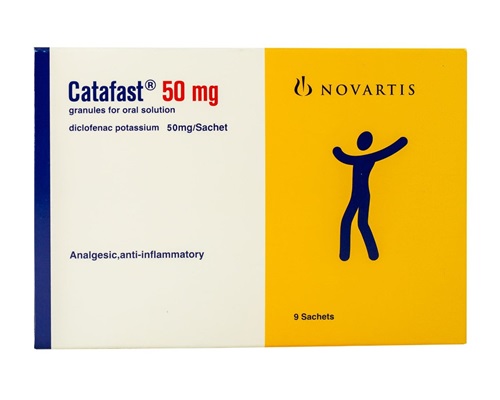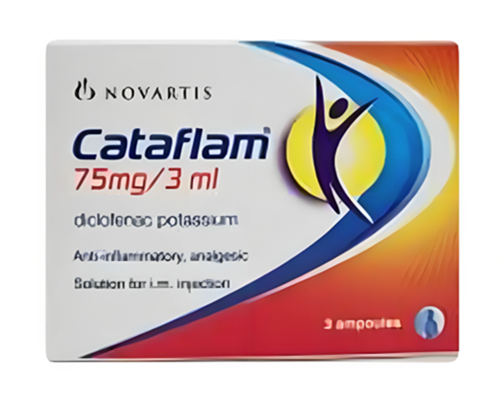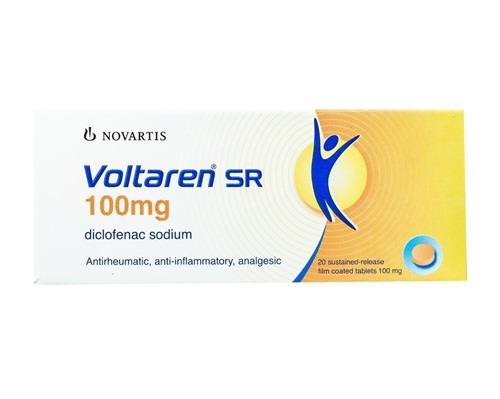Description
Trade name:
Arthrofast
Compound:
Each tablet contains:
Diclofenac sodium 150 mg
Auxiliary components:
Corn starch, sodium starch glycolate, magnesium stearate, calcium hydrogen phosphate dihydrate, microcrystalline cellulose, hypromellose, colloidal silicon dioxide, lactose monohydrate, iron oxide red, purified water.
Properties:
A derivative of phenylacetic acid; has anti-inflammatory, analgesic and antipyretic effects. Non-selectively inhibiting COX 1 and 2, it disrupts the metabolism of arachidonic acid, reduces the amount of prostaglandins (Pg) in the inflammation focus. It is most effective for inflammatory pain. Like all NSAIDs, the drug has antiplatelet activity.
Indications:
Inflammatory diseases of the musculoskeletal system (rheumatoid arthritis, psoriatic arthritis, juvenile chronic arthritis, ankylosing spondylitis; gouty arthritis, rheumatic soft tissue lesions).
Degenerative diseases of the musculoskeletal system (deforming osteoarthrosis, osteochondrosis).
Algomenorrhea; inflammatory processes in the pelvis, including adnexitis.
Pain syndrome:
– headache (including migraine) and toothache, bursitis, tendonitis, lumbago, sciatica, ossalgia, neuralgia, myalgia, arthralgia, radiculitis, in oncological diseases, post-traumatic and postoperative pain syndrome accompanied by inflammation.
As part of complex therapy for infectious and inflammatory diseases of the ENT organs with severe pain syndrome:
-pharyngitis, tonsillitis, otitis. Feverish syndrome in “colds” and infectious diseases.
Method of administration and dosage:
Orally, after meals, without chewing and with a sufficient amount of liquid (1/2-1 glass of water). When the optimal therapeutic effect is achieved, the dose is gradually reduced and switched to maintenance treatment at a dose of 50 mg / day. The maximum daily dose is 150 mg.
Contraindications:
Hypersensitivity (including to other NSAIDs), erosive and ulcerative gastrointestinal lesions (in the acute phase), bronchial asthma (risk of exacerbation), urticaria or acute rhinitis caused by taking acetylsalicylic acid or other non-steroidal anti-inflammatory drugs, severe renal/hepatic and cardiac failure, hematopoiesis disorders, pregnancy, childhood (under 6 years), lactation period.
With caution:
Gastric ulcer and duodenal ulcer, ulcerative colitis, Crohn’s disease, history of liver disease, hepatic porphyria, chronic renal failure, chronic heart failure, arterial hypertension, significant decrease in circulating blood volume (including after massive surgery), children from 6 to 15 years old, elderly patients over 65 years old (including those receiving diuretics, weakened patients and with low body weight), bronchial asthma (risk of exacerbation), concomitant use of glucocorticoids, anticoagulants, antiplatelet agents, selective serotonin reuptake inhibitors.
Precautions:
Because of the important role of prostaglandins in maintaining renal blood flow, particular caution should be exercised when prescribing to patients with cardiac or renal insufficiency, as well as when treating elderly patients taking diuretics and patients who have a decrease in circulating blood volume for any reason (e.g. after major surgery). If diclofenac is prescribed in such cases, it is recommended to monitor renal function as a precaution.
In patients with renal failure with creatinine clearance less than 10 ml/min, the quasi-steady-state plasma concentration should theoretically be significantly higher than in patients with normal renal function, but this is not actually observed, since in this situation the excretion of metabolites with bile is increased. In patients with liver failure (chronic hepatitis, compensated liver cirrhosis), the kinetics and metabolism do not differ from similar processes in patients with normal liver function.
With prolonged use in high doses, the risk of developing ulcers of the gastrointestinal mucosa, bleeding (gastrointestinal, gingival, uterine, hemorrhoidal) increases.
Side effects:
From the digestive system:
– often – NSAID-gastropathy (gastralgia, nausea, vomiting, diarrhea, abdominal pain, flatulence), anorexia.
From the nervous system:
often – headache, dizziness, increased fatigue;
rarely – drowsiness.
From the skin:
often – itchy skin;
rarely – urticaria.
From the urinary system:
– common – nephrotic syndrome (edema);
very rare – acute renal failure, hematuria.
From the respiratory system:
rarely – bronchial asthma (including shortness of breath);
very rarely – pneumonitis.
Endocrine disorders:
very rarely – impotence.
Allergic reactions:
very rare – anaphylactic/anaphylactoid reactions, including a marked decrease in blood pressure and shock.
Storage method:
Store at temperatures not exceeding 30 degrees.

